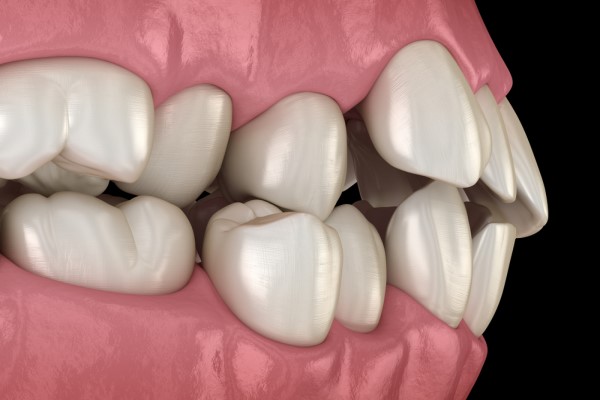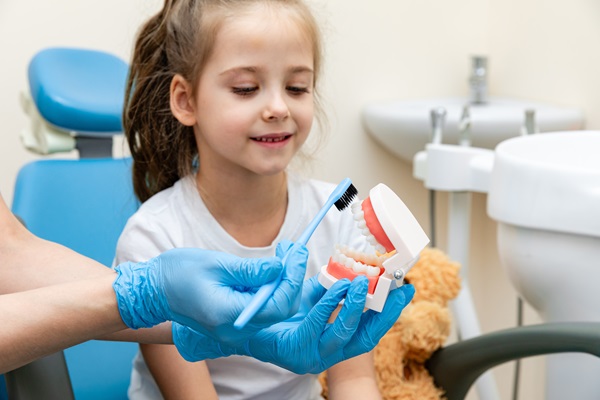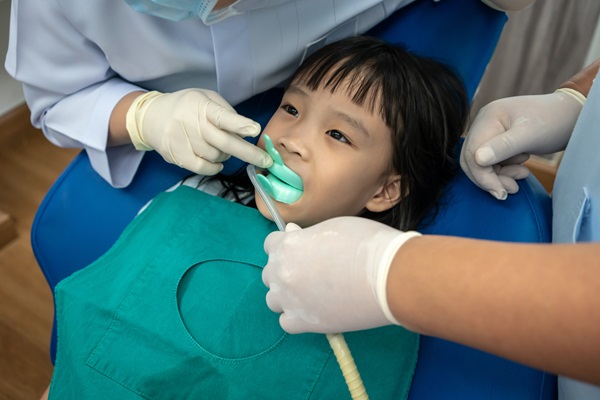How an Orthodontist Can Help Improve Speech and Chewing Through Bite Correction

Oral health is foundational to good overall health. Through the help of an orthodontist and bite correction, difficulties with chewing or speaking can be overcome. The inability to ingest food or clearly articulate impacts both physical and mental health. Bite correction has the potential to change the course of an individual’s health and wellness.
Impact of bite alignment
Changes in tooth alignment occur as the bone structure grows during adolescence and adulthood. As an individual grows older, the mouth's structure in both the upper and lower jaws should have the same U-shaped arch. As these arches align, the front teeth will rest comfortably on top of the lower teeth, though they will extend slightly beyond the bottom teeth. When the jaws do not line up correctly or when the adult teeth do not grow in properly, it can lead to oral health problems, create discomfort, and impede speech or chewing activities.
Types of bites
When the jaws are not properly aligned, it could lead to one of three types of bites. These are:
- Underbite (front teeth are tucked behind the front bottom teeth)
- Overbite (front teeth significantly overhang the bottom front teeth)
- Crossbite (individual teeth rest at a variety of angles through the mouth)
Malocclusion, or a misaligned bite when the jaw is closed, can affect one’s life, particularly in key life skills like eating and chewing.
Types of problems
Crooked teeth can make it harder to chew, causing discomfort and pain if not taken care of. Grinding and clenching can occur, which can cause premature tooth loss, broken teeth, or worn gums. Misalignment can strain the temporomandibular joint, creating cracking sounds when eating or speaking, frequent headaches, or severe jaw pain.
Speech difficulties can also come from poor tooth alignment, as the teeth are a crucial part of the speech process. Teeth that are twisted, overlapped, or crooked alter the way the tongue moves during speech. This can sometimes create a whistling noise as air passes between the teeth or cause the sounds to appear slurred.
Treatment through bite correction
The treatment used to address alignment or spacing problems with the teeth is termed bite correction. A consultation with an orthodontist will clarify what solution is best for a patient's situation. Upper and lower jaw alignment can often be corrected non-surgically through braces, either with the traditional metal brackets or clear aligner trays.
Appliances are fitted to the teeth and apply pressure to expand the jaw and slowly realign teeth into the desired position. Bands or extenders that connect the upper and lower appliances help pull the jaw into alignment. Brackets and aligners also slowly move crooked teeth into a uniform line without gaps or spacing problems. The severity of the condition determines how long appliances are worn, but plans can often take six months or longer to help ensure the teeth and jaw safely shift into new positions.
Conclusion
Orthodontics often uses pressure and special appliances to gently reposition teeth. Schedule a consultation to find out more about the treatment options that can help improve your speech or chewing patterns.
Request an appointment here: https://nettsmiles.com or call Nett Pediatric Dentistry & Orthodontics at (623) 759-7658 for an appointment in our Phoenix office.
Check out what others are saying about our dental services on Yelp: Orthodontist in Phoenix, AZ.
Recent Posts
Cavity treatment for kids is a chief concern among parents, and for a good reason. Cavities are common in children of all ages. According to the Centers for Disease Control and Prevention, over half of the kids ages 6 to 8 have had at least one cavity in a primary tooth. The good news is…
Pediatric dentistry focuses on the oral problems that occur in children. Many dental issues in kids are similar to those that occur in adults. Without proper treatment, dental problems can progress to misaligned teeth and poor oral health. If you want to maintain your child’s dental health, here are the common dental issues that pediatric…
In their early years, your youngster is still a novice in brushing and flossing their teeth, meaning that cleaning your child's teeth in that period is your responsibility. Cleaning the teeth is a skill that the child should learn. Your role is to educate your youngster on how to keep their mouths clean and healthy.…
When does my child need pediatric dentistry? This is a question that many parents often ask. The answer may vary depending on the opinion of the pediatric dentist. However, most pediatric dentists believe that a child should go to pediatric dentistry by their first birthday.A child needs to get used to the dentist at an…


